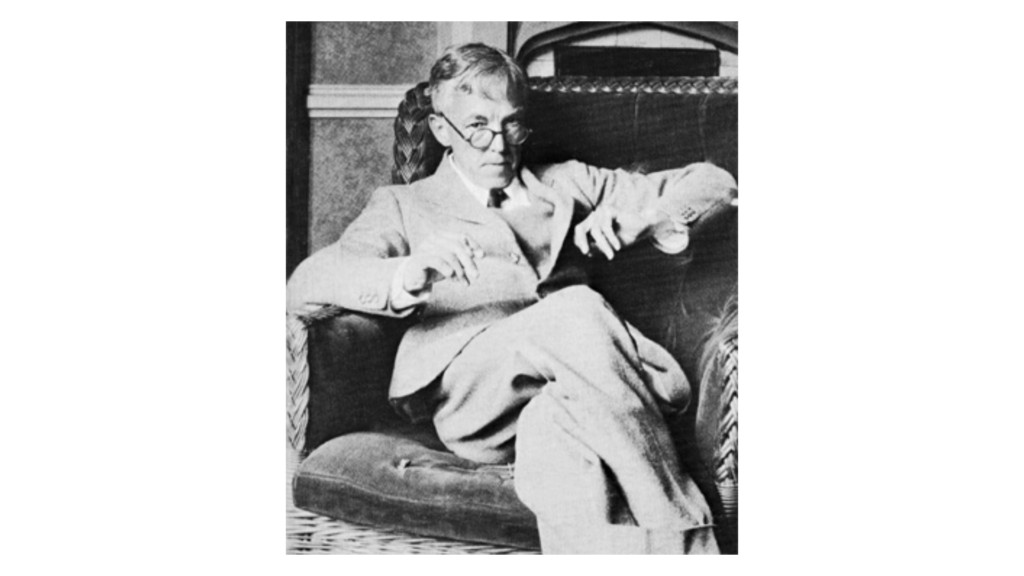In 1979, the London Mathematical Society organised the first ever Hardy Lectureship, which has now become one of the most prestigious mathematical lecture series in the world, and biennially brings together mathematicians, students, university faculty, and research staff alike. They are usually free for the public to view, and even streamed for viewing online.
In 2025, the lectureship was conducted by Emily Riehl, from the USA’s John Hopkins University. Riehl is internationally recognised for her work in ∞-category theory and homotopic algebra – both important tools used to understand complex shapes and structures in a new way. Her research focuses on combining clarity and communication with deep theoretical insight.
Tour of the UK
| Date | Location and Venue | Lecture Title |
|---|---|---|
| Fri 20 June | Aberdeen – Fraser Noble Building, University of Aberdeen | Elements of ∞-Category Theory |
| Mon 23 June | Manchester – Alan Turing Building, University of Manchester | Contractibility as uniqueness |
| Tue 24 June | Glasgow – Maths and Stats Building, University of Glasgow | From the 1-categorical Yoneda lemma to the ∞-categorical Yoneda lemma |
| Wed 25 June | Edinburgh – Bayes Centre, University of Edinburgh | Queer in math and queering math |
| Fri 27 June | Cardiff – School of Mathematics, Cardiff University | Homotopy types as homotopy types |
| Mon 30 June | Cambridge – The Chapel at Churchill College | Path induction and the indiscernibility of identicals |
| Wed 2 July | Birmingham – University House, University of Birmingham | Prospects for formalizing the theory of weak infinite-dimensional categories |
| Fri 4 July | London – De Morgan House (Official Hardy Lecture) | Could we teach ∞-category theory to undergraduates or to a computer? |
| Mon 7 July | Bristol – Fry Building, University of Bristol | A conversation on professional norms in mathematics |

The event is named after G.H. Hardy (1877-1947), a renowned mathematician and former President of the LMS, who is known for his work in number theory, analysis, and the collaboration between him and Srinivasa Ramanujan. The series promotes his vision of mathematics as a beautiful, abstract discipline.
The Hardy Lectureship is a biennial event, in which the LMS invites a prominent mathematician from abroad to embark on a UK-wide tour to deliver lectures at multiple universities, including Bristol, Cambridge, Cardiff, Edinburgh, and Aberdeen. By travelling across the country, the Lectures engage mathematicians around the country, and encourage local mathematical communities to grow. This is a key factor of what makes the Lectureship unique. This tour culminates with the Official Hardy Lecture, which is typically held at London’s De Morgan House.
The Hardy Lecture focuses on recognising and celebrating contributions of pure mathematics, and a way to foster connections between the international mathematical community and UK-based researchers. The lectures also serve as a breeding ground for mathematical discussion. They provide inspiration for students, spread new ideas across disciplines, and encourage academic dialogue.
The talks are designed to appeal to both specialist mathematicians and general audiences, which is a key reason for its success across the country. They are often followed by Q&A from the audience, which provides an opportunity to learn more about the speaker, or better understand what they’ve been discussing.
The internationally renowned mathematicians chosen for the lecturers are some of the best in their field, and are chosen to allow cutting-edge mathematics to be accessible to mathematicians, students and researchers through the UK. The mathematicians chosen previously are now remembered as key figures in the development of modern ideas.
Hardy Lecturers
| Year | Lecturer | Field / Notable Contribution |
|---|---|---|
| 1979 | G.H. Hardy | Founding figure of the Hardy Lectureship |
| 1981 | André Weil | Algebraic geometry, number theory |
| 1983 | John von Neumann | Computer Science, Game theory, quantum mechanics, |
| 1985 | Sir Michael Atiyah | Topology, index theory |
| 1987 | John Milnor | Differential topology, singularity theory |
| 1989 | Jean-Pierre Serre | Algebraic geometry, number theory, topology |
| 1991 | Sir Michael Atiyah | Further developments in topology and index theory |
| 1993 | Andrew Wiles | Proof of Fermat’s Last Theorem |
| 1995 | John Conway | Group theory, knot theory, cellular automata |
| 1997 | Pierre Deligne | Algebraic geometry, representation theory, modular forms |
| 1999 | Timothy Gowers | Functional analysis, Banach spaces, combinatorics |
| 2001 | Jean-Pierre Serre | Algebraic geometry, topology, number theory |
| 2003 | David Mumford | Algebraic geometry, pattern recognition |
| 2005 | Sir Roger Penrose | Relativity, cosmology, quantum mechanics |
| 2007 | Andrew Wiles | Further lectures on Fermat’s Last Theorem and modular forms |
| 2009 | Sir Michael Atiyah | Mathematics and its future: The role of topology |
| 2011 | Vladimir Drinfeld | Algebraic geometry, quantum groups, Langlands program |
| 2013 | Marina Ratner | Ergodic theory, dynamical systems |
| 2015 | Aubin J. Thibault | Theoretical mathematics, algebraic geometry |
| 2017 | Andrew Yao | Computer science, algorithm theory |
| 2019 | Miranda Cheng | Geometry, string theory, moonshine theory |
| 2021 | Ian Agol | Geometric topology, 3-manifolds, and hyperbolic geometry |
| 2025 | Emily Riehl | ∞-category theory, homotopy theory, mathematical logic |
The event remains regarded as one of the most prestigious mathematical events hosted in the UK, and helps achieve the LMS’s committment to build and active and connected mathematical community.
